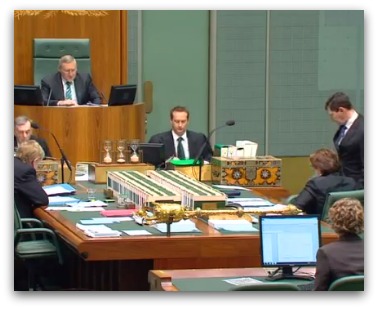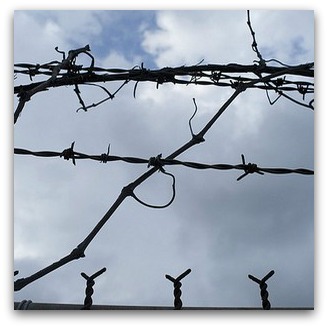Keywords: Malaysia Solution
-

AUSTRALIA
- Frank Brennan
- 19 December 2012
19 Comments
On Saturday Scott Morrison's border asylum meter registered the arrival of the 150th boat since Julia Gillard's announcement of the Pacific Solution Mark II in August. If the 'no advantage' principle is coherent and workable, the Expert Panel on Asylum Seekers and Gillard have very different understandings of its operation.
READ MORE 
-

RELIGION
- Frank Brennan
- 01 November 2012
'Even without the political static which is drowning us all out down there in Canberra, there is real doubt whether the Gillard bluff 'Don't get on a boat because you might end up in Nauru' can do what the Howard bluff could not deliver.' Full text from Fr Frank Brennan SJ's Law and Justice Oration at the Law and Justice Foundation 2012 Justice Awards Dinner, Parliament House, Sydney.
READ MORE
-

AUSTRALIA
- Binoy Kampmark
- 31 October 2012
12 Comments
In politics, hypocrisy is a natural condition. On Tuesday, it became evident that refugee policy is the last thing that should be made by the Australian government. Gillard has now achieved something Howard could only dream of, and shown Labor can play the game of hypocrisy as well as any.
READ MORE 
-

RELIGION
- Frank Brennan
- 17 October 2012
1 Comment
Full text from Fr Frank Brennan SJ's address 'Advancing human rights in Australia — lessons from the National Human Rights Consultation' at the 'Human Rights Matters!' conference marking Anti-Poverty Week 2012. 17 October 2012, Cardinal Knox Centre, St Patricks Cathedral, Melbourne.
READ MORE
-

RELIGION
- Frank Brennan
- 14 September 2012
4 Comments
In the lead up to the election, Tony Abbott and Scott Morrison are sure to continue insisting that the Gillard Government's Pacific Solution Mark II will not work. In all probability this will undermine the efficacy of the Gillard Solution in stopping the boats. Read the full text of Fr Frank Brennan's address to the Migration Institute of Australia, Menzies Hotel, Sydney, 14 September 2012
READ MORE
-

CARTOON
- Fiona Katauskas
- 12 September 2012
READ MORE 
-

RELIGION
- Frank Brennan
- 23 August 2012
11 Comments
Behind all the legal technicalities and political argument about boat people, there is room for deeper ethical reflection and a more principled proposal. But first, to clear away some of the debris.
READ MORE
-

RELIGION
- Frank Brennan
- 17 August 2012
26 Comments
All major political parties now hope they can confine people in Nauru for years on end without any prospect of court supervision and without any need for Parliament to revisit the matter. We have reached a fork in the road between decency and deterrence. As a nation we have taken the low road, inviting the newest signatory to the Refugees Convention to emulate our indecent behaviour.
READ MORE 
-

RELIGION
- Frank Brennan
- 14 August 2012
27 Comments
Amending the Migration Act to make the old style Pacific solution less susceptible to judicial review errs on the wrong side of decency. The Coalition and the Greens should unite in the Senate to oppose it. In the protection of the human rights of asylum seekers, deterrence must come second to decency and accountability, even when we are trying to beat people smugglers.
READ MORE 
-

RELIGION
- Frank Brennan
- 10 August 2012
9 Comments
Next week Parliament reconvenes; meanwhile the boats keep coming. Chris Bowen will be armed with a report from an expert panel that has been hearing from the community. We're still awaiting an answer on unaccompanied minors under the Malaysia solution. Until one is provided no one in good conscience can give it the tick.
READ MORE 
-

AUSTRALIA
- John Menadue
- 26 July 2012
9 Comments
There is a lot of political point-scoring over whether particular countries have signed the Refugee Convention. But there is no signatory country on the route used by almost all asylum seekers fleeing to Australia. A regional framework must be built on what's available — such as the Malaysian agreement.
READ MORE 
-

AUSTRALIA
- Fatima Measham
- 11 July 2012
16 Comments
The tear-shedding in parliament over people drowning near our northwest coast was astonishing. In a decade that has seen asylum seekers demonised by policymakers, the reversal was nearly comical: asylum seekers, it turns out, are human beings. It illustrates how poorly the question of asylum has been discussed since 2001.
READ MORE 